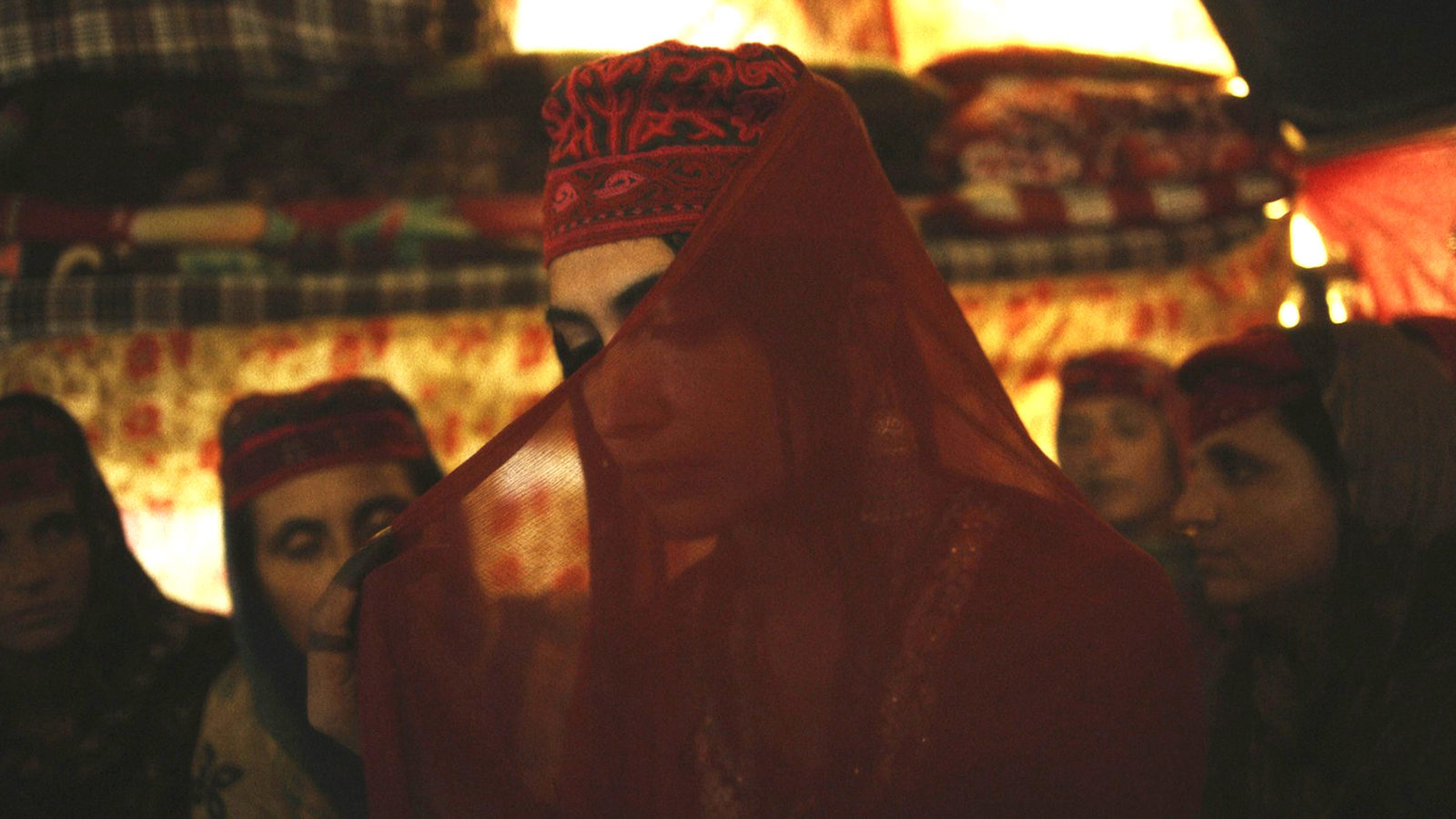
The Shepherdess and the Seven Songs
Laila, the heroine of The Shepherdess and the Seven Songs, is a spunky beauty coveted by two different men; all she wants, however, is her independence. The character is a thinly veiled stand-in for the place that is her home: the mountainous province of Jammu and Kashmir, which for decades has fought for sovereignty from two militaristic states. But Pushpendra Singh’s fourth feature extends beyond simple metaphor, crafting a beguiling romantic narrative out of a short story by Vijaydan Detha (who also provided the source for Singh’s 2014 debut feature, The Honor Keeper) and the poems of 14th-century Kashmiri mystic Lalleshwari. In the film’s opening, a grudging Laila is married off to a young nomadic shepherd; soon, she’s also wooed by a lecherous cop. A sexy, suspenseful love triangle commences as our heroine, disinterested yet lustful, tries to entrap the policeman by inviting him to late-night rendezvous to which she also brings her husband. The cop escapes these situations by inventing excuses about lurking militants and bureaucratic orders. The parallels to the Indian state’s excesses are evident, but Singh doesn’t belabor the point, reveling in the rich cultural specificities of the setting: the hybrid tongues and communal ways of the nomads; the folk songs, heavy with longing, that punctuate the film; and the valley’s steep, breathtaking topography, which intersects with Ranabir Das’s roving camera in hypnotic ways.
Devika Girish is the Assistant Editor at Film Comment.








